Kitchen Gardens
As part of Nyanam’s sustainable approach to ensure widows have food and nutrition security as well as an additional source of income we initiated the kitchen gardens program. The first phase of the program served 115 widow households and established a total of 225 kitchen gardens. As Nyanam incorporates more widows into our organization and leadership circles we will continue to support the creation of kitchen gardens for the widows and their families.
Kitchen Gardens Launch
For the launch of the kitchen gardens program, we distributed two types of vegetable seeds to 115 widow households: African nightshade and spider plant. We provided the widows with these traditional vegetables that they could grow in their farms. When we celebrated International Widows Day, we listened to stories of how these vegetables had become the primary source of food for some of the households. The widows also shared stories of the challenges they faced with planting and taking care of these vegetables.
With this feedback, Nyanam worked with one of our youth leaders who is trained in agriculture to design a kitchen gardens project for the widows. We divided the 115 widows into seven groups of a maximum of 20 widows each, with each group selecting a lead farmer who provided a part of her farm to be used as a training and demonstration farm. We gave each widow 10 grams packet of four different types of vegetables, adding slenderleaf and cowpeas to the African nightshade and spider plant. We implemented three phases of training with the widows.
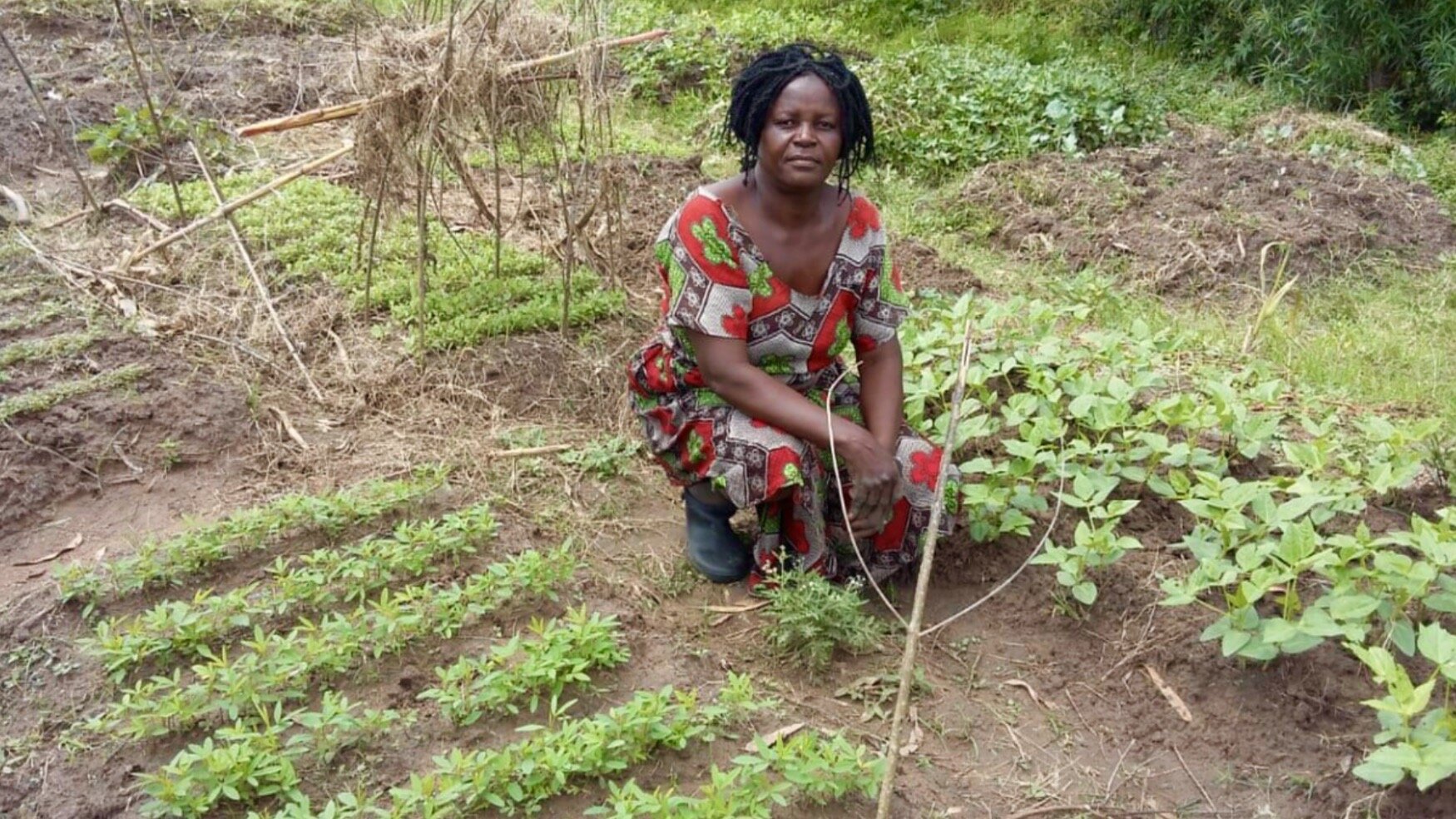
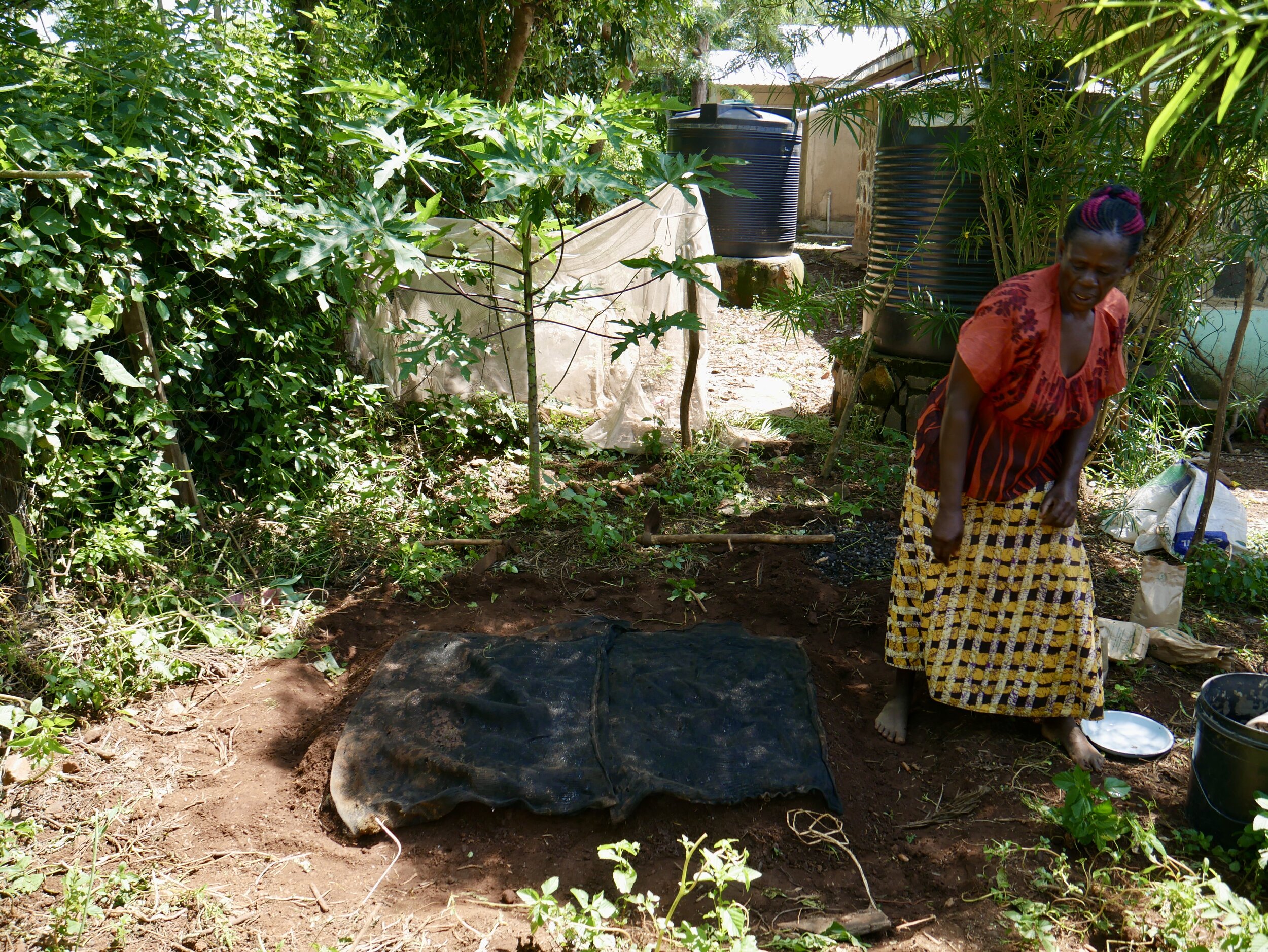
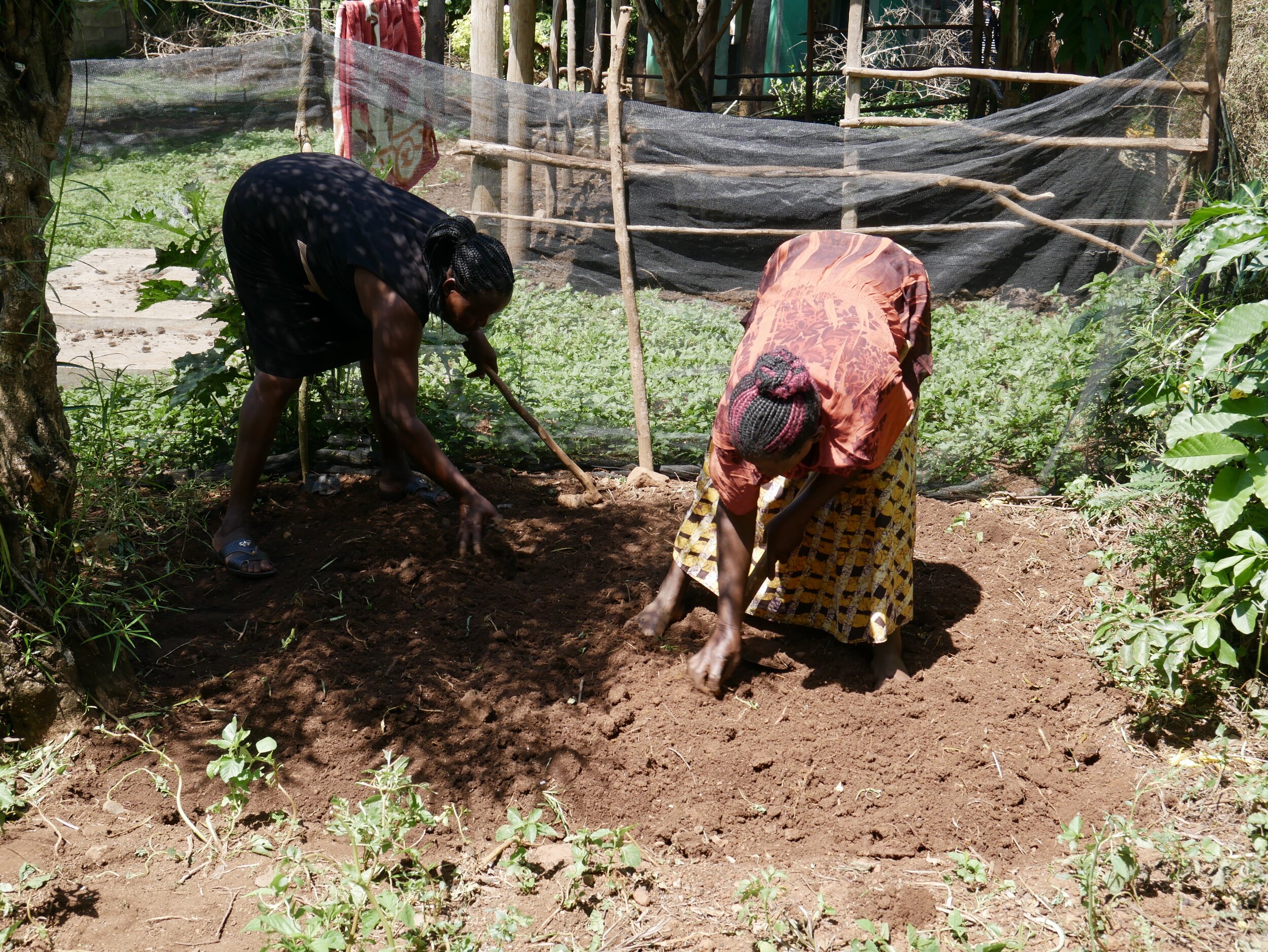
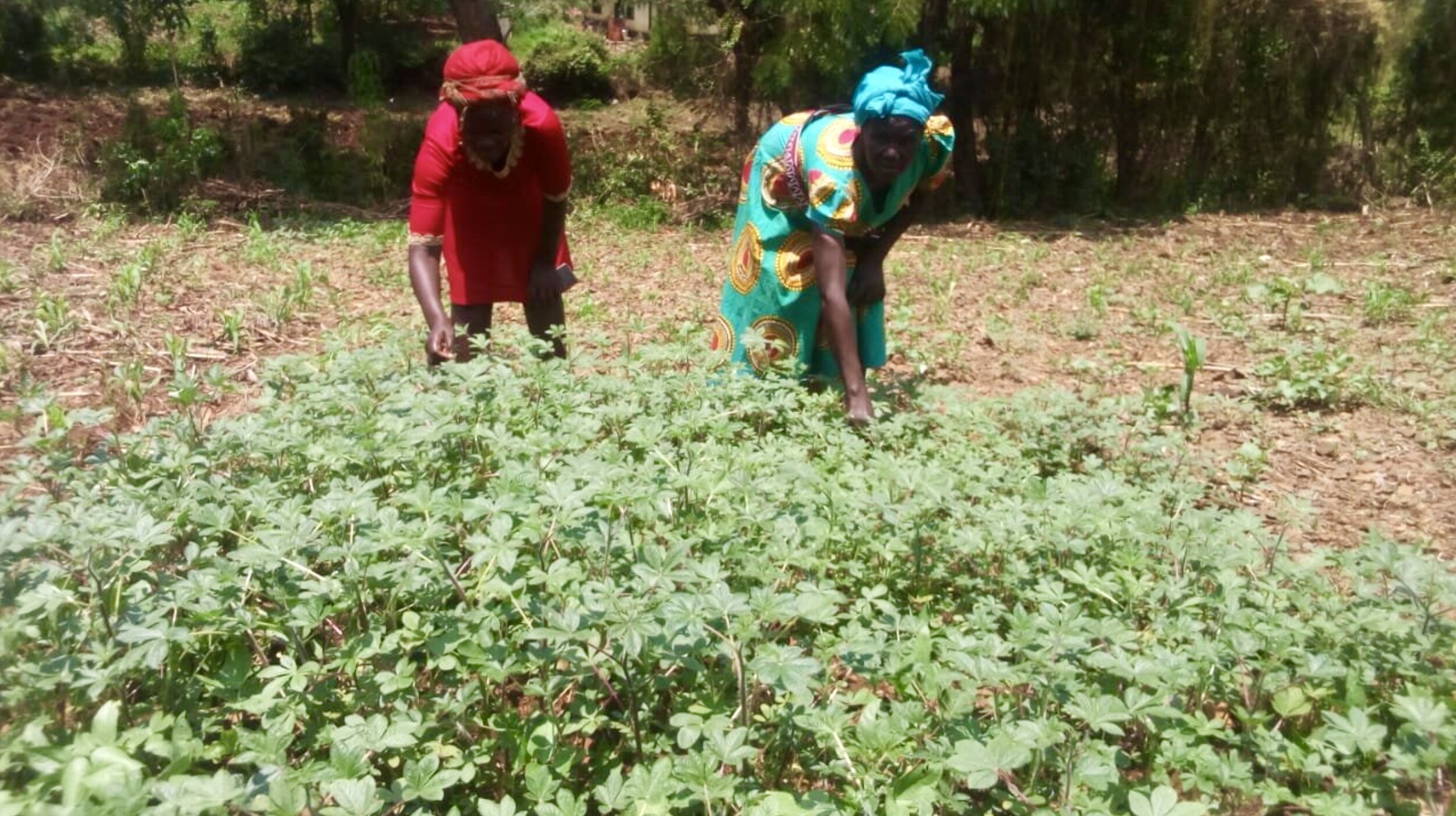
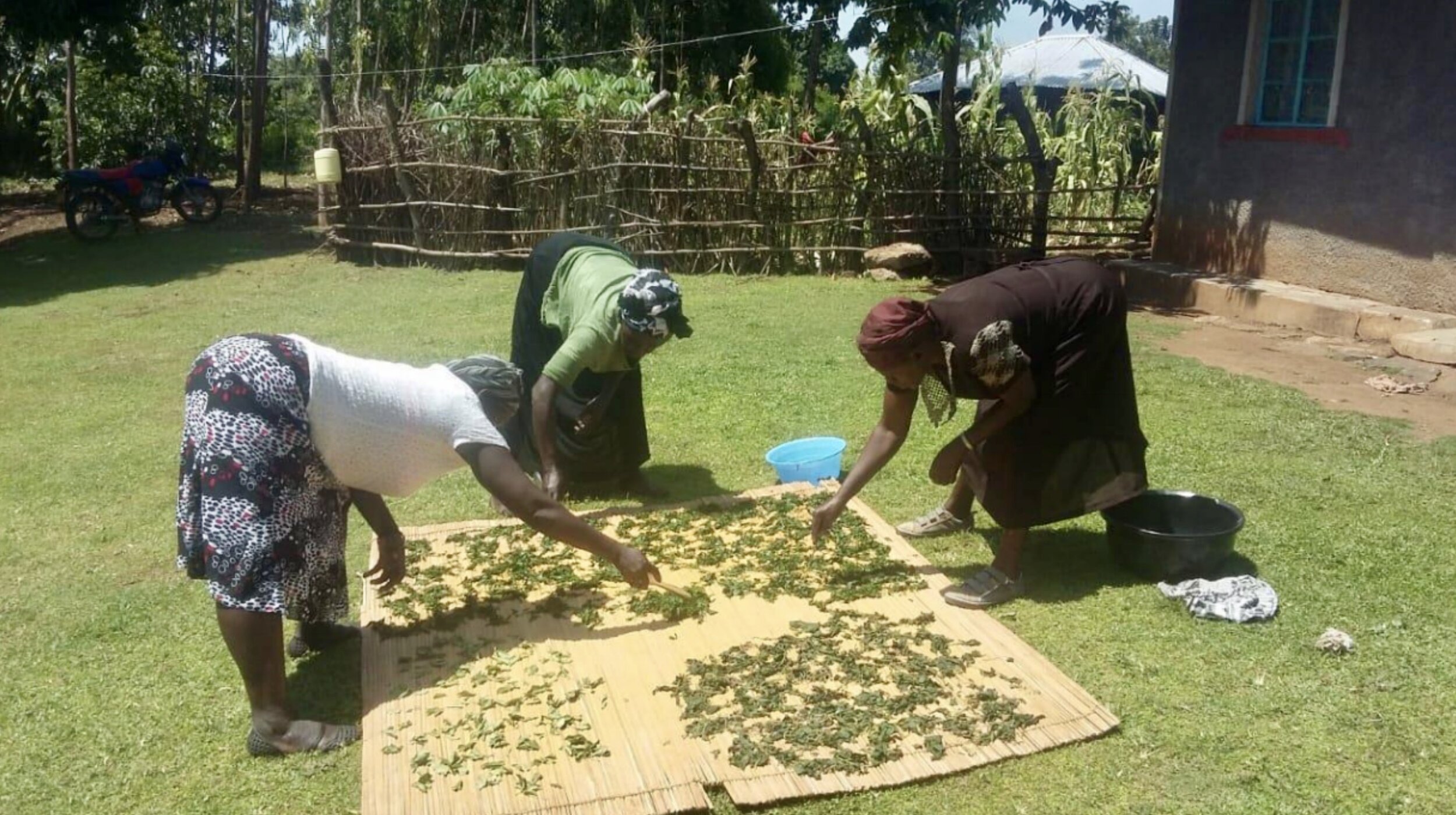
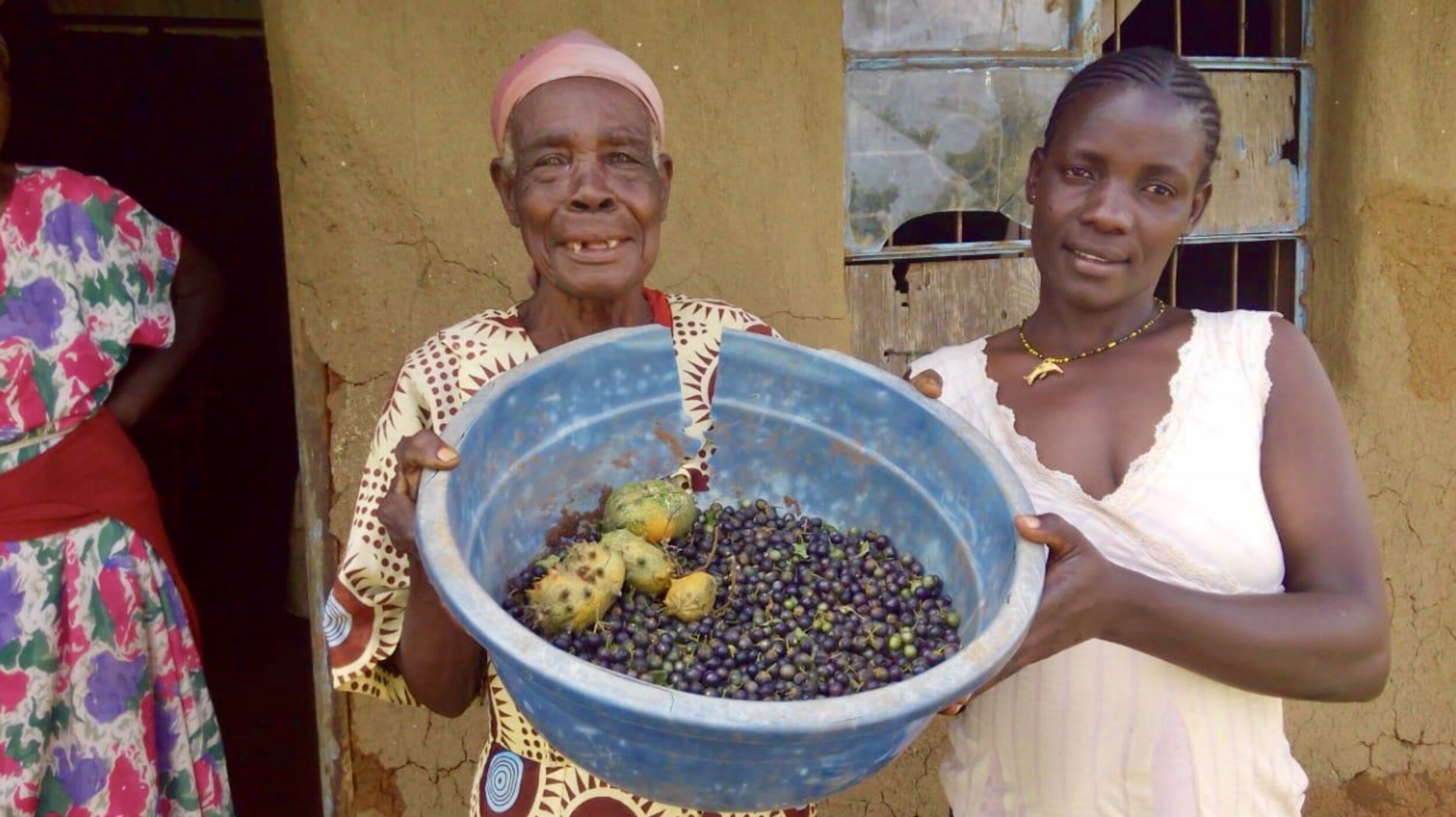
Establishment Phase
In establishment training, the widows learnt how to prepare organic manure from goat, chicken and cow dung, the medicinal and nutritional values of each of the four vegetables, and how to prepare their farms, establish vegetable seed nursery.
Maintenance Phase
In the maintenance training, the widows learnt how to transplant seedlings, weed their vegetables and control different types of pests using organic methods. We gave each Nyanam widow two extra packet of seeds to share with other widows in their community who are not part of Nyanam, are facing the food crisis, and would benefit from being part of leadership circle if they created one. While donating these seeds, Nyanam widows shared about their leadership circles and how the widow-to-widow support group had helped them and invited these new widows to also create their own leadership circles.
Education Phase
After the establishment training, Nyanam widow leaders trained another 115 widows in their community on the establishment of kitchen gardens and donated two extra packets of seeds to the widows. A total of 225 kitchen gardens were planted across the villages. We also conducted a value addition training where the widows learnt traditional methods such as sun or shade drying for preservation of the vegetables. Many of the widows took vegetables to the market and earned additional income. They all ensured no vegetable was wasted in the farm as they knew how to preserve the extra vegetables. Many of the widows have harvest seeds from these vegetables preparing for the next season for planting.
